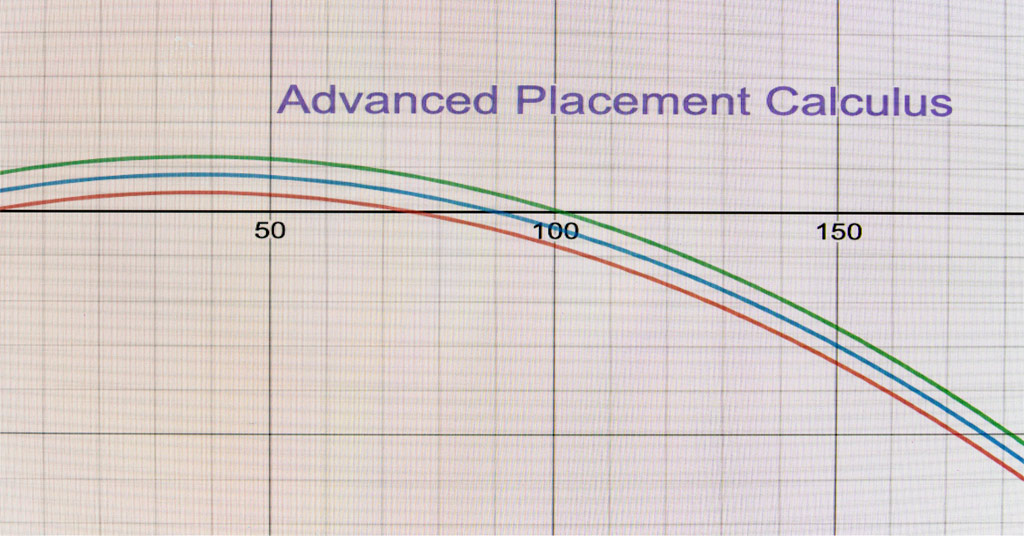Ambitious students who are planning on attending college have a lot to consider during their high school years.
What extracurricular activities should I participate in? Which exam should I take — the SAT® exam, the ACT® exam, or both? What schools are my dream, target, and safety schools? How do I build a study plan to maximize exam scores?
But perhaps the most important question students face is this: What classes should I take? The answer to this question can affect an admission decision and possible credits to earn before you even step foot on campus.
Colleges and universities want to see that you challenged yourself in high school with a rigorous course load and that you’re prepared for college success. This is why students who are college bound will almost always take AP® classes, dual enrollment classes, or IB ® classes.
So, what are the differences and which classes are best for you? Let’s take a look . . .
AP Classes
Advanced Placement (AP) are classes developed by the College Board® that are more difficult than the average high school class. The purpose of AP classes is to give students access to college-level classes and potentially earn college credits while still in high school.
AP curricula is standardized across the nation. Every student who takes an AP course is getting the same information regardless of the school, district, or state they are in. For this reason, similar to the SAT exam, colleges have a standard point of academic reference in the admissions process.
In May of each year, an AP exam is administered for each AP course. The exams are graded on a 1–5 scale. It is the success, or lack thereof, on these exams that colleges and universities look at closely. A score of 3 or higher demonstrates that the student understands the college-level content and is a recommendation for colleges to give college credits.
Each college and university has its own criteria for awarding credits based on AP scores (many schools require a 4 or 5), but the vast majority of schools award college credits in conjunction with AP exam success.
Pros for AP:
- Demonstrate college readiness with standardized College Board content
- Differentiate yourself from other students with an AP transcript that shows you like to challenge yourself
- Earn college credits in advance of college, decreasing your eventual tuition costs
- AP exams are open to everyone
- The AP program offers AP awards to recognize excellence (i.e. AP Scholar, AP Scholar with Honor, AP Scholar with Distinction). These awards are helpful when applying for scholarships.
Cons for AP:
- AP exams are not free
- Taking an AP course does not guarantee college credit. Exam success is key.
Dual Enrollment Classes:
Dual enrollment (also known as Early College High School (ECHS) programs) typically refers to taking college courses while still in high school. The college classes are usually taken at a local college or university or online, with the instructor being the university professor, and credits will go towards your college transcript.
There are requirements that must be met to enroll in a dual enrollment course and these requirements vary from state to state. Generally speaking, a student must be at least 16 years old, maintain a predetermined GPA, and have parental or legal guardian permission.
**Dual enrollment programs can come in many forms depending on your high school and the participating college or university. Sometimes you may also earn dual credit for college courses you are enrolled in, earning you credits for BOTH the partner college and high school.
Pros for Dual Enrollment:
- Completing a college course while in high school earns college credit (at the college offering the course), potentially allowing you to graduate college sooner and save money
- Early introduction to what a college course is like, access to a greater variety of classes, ability to explore possible majors, and getting a taste of what the college experience is like if attending classes on campus
- The possibility of earning an associate degree while still in high school
- No standardized test
Cons for Dual Enrollment:
- Dual enrollment is not always free (financial obligations vary from state to state)
- Dual enrollment programs are not offered at every college or university
- Credits earned in dual enrollment are applicable at the college offering the course. It is not guaranteed that those credits will transfer to another college or university.
- College admissions officers sometimes look more favorably on AP classes (AP classes are often more rigorous than an entry-level college course taken in dual enrollment.)
IB Classes:
IB classes (International Baccalaureate®) use a standardized curriculum established by the International Baccalaureate Organization in Geneva, Switzerland. IB course work is generally known for emphasizing creative and critical thinking.
Students can choose to take individual IB courses or to enroll in an IB Diploma program. Both of these options are dependent upon whether or not their high school offers IB courses.
Though not as widely available, IB courses are similar to AP courses in their rigor. Furthermore, IB courses end with an exam in much the same way AP courses do. However, students must be enrolled in an IB course to take the exam. (Students do not have to enroll in an AP course to take its culminating exam.)
Though admissions officers are generally more aware of the AP program, colleges tend to consider AP and IB with equal weight.
Pros for IB:
- Demonstrates student willingness to challenge themselves
- Some colleges will award college credit for high IB exam scores
- Offers a two-year program with a diploma
Cons for IB:
- IB courses and exams are not free
- Though gaining popularity, a majority of high schools don’t offer IB courses
- Colleges prefer a student complete the full IB program, not individual IB courses
There are tremendous advantages in taking AP classes, dual enrollment classes, IB classes, or any combination of the three. The important thing is that you are planning ahead and doing the work that will culminate in college success. With an attitude and work ethic like that, you are well on your way to gaining admission into your dream school.
At UWorld, we do more than just prepare you for the test, we prepare you for success. High-stakes exam takers are raving about our product because it increases retention, raises scores, and builds confidence. Let us help you hit your target test score with a new attitude — a bold, energetic, reassured peace of mind.




